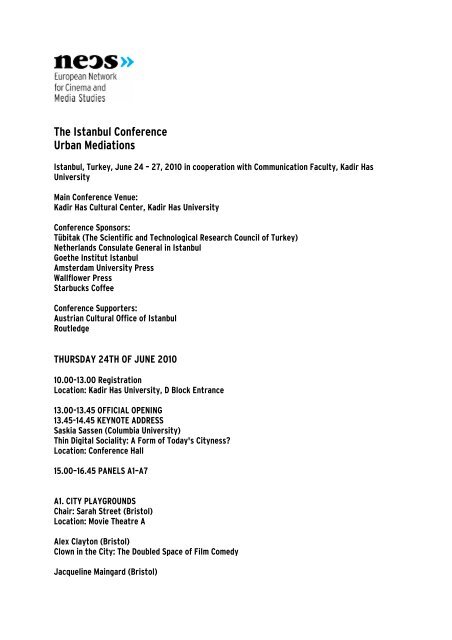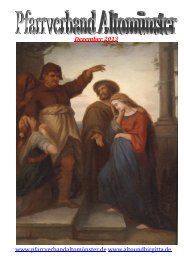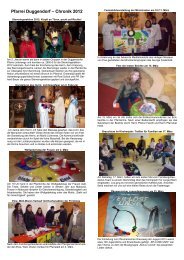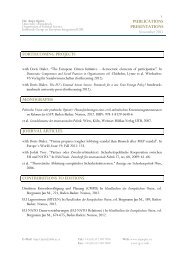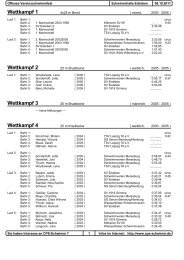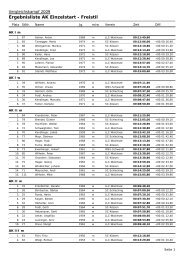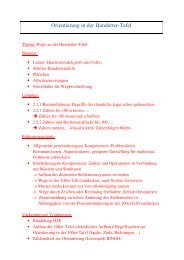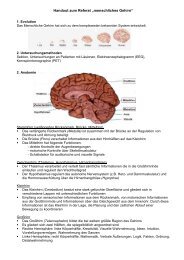The Istanbul Conference Urban Mediations - Gratis Webserver
The Istanbul Conference Urban Mediations - Gratis Webserver
The Istanbul Conference Urban Mediations - Gratis Webserver
You also want an ePaper? Increase the reach of your titles
YUMPU automatically turns print PDFs into web optimized ePapers that Google loves.
<strong>The</strong> <strong>Istanbul</strong> <strong>Conference</strong><br />
<strong>Urban</strong> <strong>Mediations</strong><br />
<strong>Istanbul</strong>, Turkey, June 24 – 27, 2010 in cooperation with Communication Faculty, Kadir Has<br />
University<br />
Main <strong>Conference</strong> Venue:<br />
Kadir Has Cultural Center, Kadir Has University<br />
<strong>Conference</strong> Sponsors:<br />
Tübitak (<strong>The</strong> Scientific and Technological Research Council of Turkey)<br />
Netherlands Consulate General in <strong>Istanbul</strong><br />
Goethe Institut <strong>Istanbul</strong><br />
Amsterdam University Press<br />
Wallflower Press<br />
Starbucks Coffee<br />
<strong>Conference</strong> Supporters:<br />
Austrian Cultural Office of <strong>Istanbul</strong><br />
Routledge<br />
THURSDAY 24TH OF JUNE 2010<br />
10.00-13.00 Registration<br />
Location: Kadir Has University, D Block Entrance<br />
13.00-13.45 OFFICIAL OPENING<br />
13.45-14.45 KEYNOTE ADDRESS<br />
Saskia Sassen (Columbia University)<br />
Thin Digital Sociality: A Form of Today's Cityness?<br />
Location: <strong>Conference</strong> Hall<br />
15.00–16.45 PANELS A1–A7<br />
A1. CITY PLAYGROUNDS<br />
Chair: Sarah Street (Bristol)<br />
Location: Movie <strong>The</strong>atre A<br />
Alex Clayton (Bristol)<br />
Clown in the City: <strong>The</strong> Doubled Space of Film Comedy<br />
Jacqueline Maingard (Bristol)
At Play in the Post-colonial City: Global Cinemas from Africa and Europe<br />
Kristian Moen (Bristol)<br />
<strong>Urban</strong> Escapades: Sites of Modernity in Au bonheur des dames<br />
Sarah Street (Bristol)<br />
Brief City and the Festival of Britain, 1951<br />
A2. URBAN IMAGINARIES, URBAN ENTANGLEMENTS<br />
Chair: Nilgün Bayraktar (Berkeley)<br />
Location: D-98<br />
Scott McQuire / Nikos Papastergiadis (Melbourne)<br />
<strong>Urban</strong> Screens and Participatory Public Space<br />
Kyle Weise (Melbourne)<br />
<strong>The</strong> Spaces of the Bonaventure Hotel: Travels through Architecture, <strong>The</strong>ory and Cinema<br />
Ramon Lobato (Swinburne)<br />
Counterfeit Cinematic Cities: Mapping Informal Distribution<br />
A3. REPRESENTATIONS OF ISTANBUL AND THE CIRCUITS OF CULTURAL PRODUCTION<br />
Chair: Gülengül Altıntas (<strong>Istanbul</strong>)<br />
Location: Movie <strong>The</strong>atre B<br />
Rolien Hoyng (Chapel Hill)<br />
<strong>The</strong> Branded City <strong>Istanbul</strong>: Technologies of <strong>Urban</strong> Governance and Negotiations of Belonging<br />
Derya Özkan (Munich)<br />
<strong>The</strong> Role of Cultural Producers in Shaping the Emerging Image of “Cool <strong>Istanbul</strong>”<br />
Sevgi Ortaç (<strong>Istanbul</strong> / Enschede)<br />
Attack of the City Legends/ <strong>The</strong> Habitable Labyrinth of City Walls as an Interface of <strong>Istanbul</strong><br />
Melis Behlil (<strong>Istanbul</strong>)<br />
Imagined Locations: Representations of <strong>Istanbul</strong> in the Films of Fatih Akın<br />
A4. ‘URBANIMATION’: REPRESENTATIONS OF THE CITY IN ANIMATION<br />
Chair: Paul Ward (Bournemouth)<br />
Location: D-107<br />
Van Norris (Portsmouth)<br />
In the City: Animating 21st Century Britain<br />
Caroline Ruddell (London)<br />
<strong>Urban</strong> Nightmares: Anime City Spaces<br />
Paul Ward (Bournemouth)<br />
Never Forget Who You Are and Where You Are From”: Persepolis as <strong>Urban</strong> Memoir
A5. FRENCH CINEMA IN BRITAIN<br />
Chair: Lucy Mazdon (Southampton)<br />
Location: D-106<br />
Lucy Mazdon (Southampton)<br />
French Cinema in Britain in the 1930s: A Heyday for the “Continentals”<br />
Catherine Wheatley (Southampton)<br />
“A New Low in French Films”: Changing British Perceptions of French Cinema in the 1970s<br />
Cécile Renaud (Southampton)<br />
Artificial Eye’s ‘<strong>The</strong> French Collection’: Challenging Notions of the French Auteur in British<br />
Distribution<br />
A6. STILL / MOVING<br />
Chair: Mattias Frey (Kent)<br />
Location: D-105<br />
Thomas Waitz (Cologne)<br />
Empty Spaces, Empty Images? Stephen Shore’s Photographies of Suburban America and a<br />
Mediality of Emptiness<br />
Ludovic Cortade (New York)<br />
From Stillness to Movement in post-1968 Paris: <strong>The</strong> Man Who Sleeps by Georges Perec and<br />
Bernard Queysanne<br />
Aurore Fossard (Lyon)<br />
<strong>The</strong> Paparazzi in Western Cinema: From the Mediator to the Enemy<br />
Rainer Hillrichs (Bonn)<br />
Unfinishing the Metropolis: Daily Photo Blogs of New York City<br />
A7. NON-FICTION MEDIA<br />
Chair: Britta Hartmann (Bonn)<br />
Location: D-114<br />
Will Straw (Montreal)<br />
<strong>The</strong> Kiosk and the Newshawker<br />
Melinda Blos-Ján (Cluj Napoca)<br />
In and Out of Context: On the Evidentiary Status of Home Movies and Autobiographical Films<br />
Stefano Odorico (Cork)<br />
<strong>The</strong>y Are Wonderful Human Beings (Werner Herzog)<br />
Yesim Burul Seven (<strong>Istanbul</strong>)<br />
Mediating Cityscapes: <strong>Urban</strong> Images in Transnational Documentaries
SCREENING:<br />
Ah Guzel <strong>Istanbul</strong> (O Beautiful <strong>Istanbul</strong>)<br />
Dir. Atif Yilmaz<br />
1966, 97 min.<br />
Location: <strong>Conference</strong> Hall<br />
17.00–18.45 PANELS B1–B7<br />
B1. OUT OF PLACE? SEX, GENDER AND SPACE<br />
Chair: Annette Brauerhoch (Paderborn)<br />
Location: Movie <strong>The</strong>atre A<br />
Martina Ladendorf (Luleå)<br />
<strong>The</strong> Identifications and Dis-identifications of Place and Class in the Reception of <strong>The</strong> L-word<br />
Carsten Albers (Paderborn)<br />
Passion, Fearlessness, and Butter? Gendered Stagings of Female Chefs in Contemporary Films by<br />
Female Film Directors<br />
Ingrid Ryberg (Stockholm)<br />
Gender, Sexuality and Public Spheres – A Case Study of the Swedish Feminist Porn Film Project<br />
Dirty Diaries<br />
Mariah Larsson (Malmö)<br />
<strong>The</strong> Negotiation of Public, Sexual Space: <strong>Urban</strong>ity, Gender, and the Exhibition of Pornographic<br />
Films in Malmö in the 1970s<br />
B2. PUBLIC ENEMIES: FILM BETWEEN IDENTITY FORMATION AND CONTROL<br />
Chair: Winfried Pauleit (Bremen)<br />
Location: Movie <strong>The</strong>atre B<br />
Dagmar Brunow (Hamburg)<br />
<strong>Mediations</strong> on Governmentality, <strong>Urban</strong> Spaces and the Ontology of the Image: Reconceptualising<br />
Black British Experimental Filmmaking<br />
Daniel Illger (Berlin)<br />
<strong>The</strong> Classical US Gangster Movie and the Motif of the Vertical <strong>Urban</strong> Journey<br />
Kostis Kornetis (Providence)<br />
Tragicomic Chronicles of Defiance in a Greek and a Turkish Town under Dictatorship<br />
Winfried Pauleit (Bremen)<br />
Filmic Discourses on Public Enemies<br />
B3. LOST CAUSES, PENDING CASES: FILM THEORIES OF HISTORICITY<br />
Chair: Tobias Ebbrecht (Potsdam)<br />
Location: D-114
Chris Tedjasukmana (Berlin)<br />
<strong>The</strong> Experience of “Lost Causes”: Cinema and the Return of Vitalism as Historiography<br />
Karin Harrasser (Cologne)<br />
Singular Joints and Longues Durées: Alexander Kluge’s Idiosyncratic <strong>The</strong>ory of History<br />
Drehli Robnik (Vienna)<br />
Afterwardsness, Awkwardness, Paratactics, Basterds: Inglorious Historicity in Cinema<br />
B4. THE MEDIATION OF CULTURAL DIVERSITY IN GLOBAL CITIES<br />
Chair: Levent Soysal (<strong>Istanbul</strong>)<br />
Location: D-107<br />
Arne Saeys (Amsterdam/<strong>Istanbul</strong>)<br />
Imag(in)ing the Global City. Migratory Filmmaking in European World Cities<br />
Kevin Smets (Antwerp) [in collaboration with Iris Vandevelde, Philippe Meers, Roel Vande Winkel<br />
(Antwerp) / Sofie Van Bauwel (Ghent)]<br />
Cinema in the Multicultural City: Diasporic Film Structures of the Indian, North African, Jewish<br />
and Turkish Communities in Antwerp (Belgium)<br />
Volkan Aytar (Amsterdam)<br />
Consuming the Other: Depictions of ‘Ethnic Minorities’ in <strong>Istanbul</strong><br />
Savas Arslan (<strong>Istanbul</strong>)<br />
Conversing the Historical and Cultural ‘Di-versity’ of Cinema in Turkey<br />
B5. SENSE OF BELONGING<br />
Chair: Zeynep Dadak (New York / <strong>Istanbul</strong>)<br />
Location: D-105<br />
Jocelyn Maixent / Ghislain Deslande (Paris)<br />
Is Turkish Cinema Imbued with European Identity? Economic and Aesthetic Perspectives<br />
Robert Furze (Dublin)<br />
Lost in London: Denying <strong>The</strong> City’s Persistent Cinematic Identity in David Cronenberg’s Eastern<br />
Promises<br />
Laura Panait (Cluj-Napoca)<br />
<strong>The</strong> Aesthetics of Resistance in Post-communist Romanian <strong>Urban</strong> Space<br />
B6. REPRESENTING THE CITY<br />
Chair: Esin Paça (<strong>Istanbul</strong>)<br />
Location: D-98<br />
Dina Heshmat (Leiden)<br />
From Vertigo to a Fragmented Metropolis: Representations of Cairo in Modern and Contemporary<br />
Egyptian Literature and Film
Barıs Kılıçbay (Abant) / Nejat Ulusay (Ankara)<br />
Mission <strong>Istanbul</strong>: A City of Lost Fantasies<br />
Luca Barra/ Massimo Scaglioni (Milan)<br />
MILAN ON/OFF TV Representations of a City in Television Entertainment<br />
Anton Kaes (Berkeley)<br />
“No Sense of Transcendence”: Weimar Street Film, Gender, and Modernity<br />
B7. INDUSTRIAL LOGICS<br />
Chair: Mark Gallagher (Nottingham)<br />
Location: D-106<br />
Anders Marklund (Lund)<br />
Turkish Film Revival in a European Context: A Comparative Study on Contemporary Blockbusters<br />
Pavel Skopal (Brno)<br />
Kings, Indians, Swordsmen, Acrobats and Skaters: <strong>The</strong> Most Attended Movies and <strong>The</strong>ir<br />
Entertainment Values in the Socialist Era: <strong>The</strong> Case of Czechoslovakia, 1948-1970<br />
Patrick Vonderau (Stockholm)<br />
"To See Is To Know": Hollywood, the Studio Preview, and Suburban Audiences<br />
Helle Kannik Haastrup (Roskilde)<br />
Mediating Spectacular Movie Stars - A Cross-Media <strong>The</strong>ory of Celebrity Culture<br />
SCREENING:<br />
Tabutta Rövasata (Somersault in a Coffin)<br />
Dir. Dervis Zaim<br />
1996, 75 min.<br />
With the participation of the director<br />
Location: <strong>Conference</strong> Hall<br />
18:45 – 20:00 OPENING RECEPTION hosted by Kadir Has University (Kadir Has University B Block)<br />
FRIDAY 25TH OF JUNE 2010<br />
09.00–10.45 PANELS C1–C7<br />
C1. FILM GENRES AS TRANSITORY CATEGORIES<br />
Chair: Florian Mundhenke (Marburg)<br />
Location: Movie <strong>The</strong>atre A<br />
Peter W. Schulze (Mainz)<br />
Cangaceiros and Feijoada: Transformations of the Western Genre in Brazilian Cinema
Harald Steinwender (Mainz)<br />
Black Gloves, Dirty Cops, and ‘Citizens above Suspicion’– Transformations of the Crime Film in<br />
Italy<br />
Florian Mundhenke (Marburg)<br />
Fictional Genres, Documentary Styles: <strong>The</strong> Hybridization of Genre Standards through Atypical<br />
Representation Techniques<br />
Alexander Zahlten (Tokyo)<br />
Immanence and Practice: Anime and the Limits of Genre <strong>The</strong>ory<br />
C2. THE SIREN’S CALL OF USABILITY: NAVIGATING MEMORY THROUGH MEDIA<br />
Chair: Teréz Vincze (Budapest)<br />
Location: D-98<br />
Franziska Bruckner (Vienna) / Julian Palacz (Vienna)<br />
Algorithmic Search for ‘Memory’– <strong>The</strong>oretical and Practical Possibilities of an Innovative Search<br />
Engine for Film Contents<br />
Melanie Letschnig (Vienna)<br />
Trouble over Tokyo: Dainipponjin (Big Man Japan) as Many-voiced Swan Song for the Japanese<br />
Monster Movie<br />
Tristan Thielmann / Pablo Abend (Siegen)<br />
<strong>The</strong> Deep Throat and Flat Land of Google Earth<br />
Georg Vogt (Vienna)<br />
Hometown Dialectics: Essayistic Reflexions on Documentary, Memory and History in Guy Maddin’s<br />
Docufantasia My Winnipeg<br />
C3. FROM MANHATTAN TO QUEENS: MAPPING METROPOLITAN SPACES IN RECENT TV SERIES<br />
Chair: Yesim Burul Seven (<strong>Istanbul</strong>)<br />
Location: Movie <strong>The</strong>atre B<br />
Silke Roesler / Herbert Schwaab (Regensburg)<br />
Sex and the City vs. King of Queens: A Dialogue between Carrie Heffernan and Carrie Bradshaw<br />
Hanna Surma (Bochum)<br />
Friends in the City: <strong>The</strong> Invention of New York in Contemporary Sitcoms<br />
Sebastian Scholz (Darmstadt)<br />
Inside out: Reconstructing the City from its Interior - <strong>The</strong> Televisual Style of Mad Men<br />
Daniela Wentz (Weimar)<br />
<strong>The</strong> Production of Space in the Age of Digital Rumour: Gossip Girl'sNYC<br />
C4. HABITABLE SPACES<br />
Chair: Bjorn Sorenssen (Trondheim)
Location: D-105<br />
Gabrielle Murray (Victoria)<br />
<strong>The</strong> City, the Desert and the Town-camp: Fringe Dwellers and Places of Transition in Samson and<br />
Delilah<br />
Wendy Haslem (Melbourne)<br />
Microcosms at Home: Space, Scale and Perspective in Hiraki Sawa’s Digital Videos<br />
Kristian Feigelson (Paris) / Mehmet Öztürk (<strong>Istanbul</strong>)<br />
<strong>The</strong> Hybrid City<br />
C5.CITY VISITS<br />
Chair: David Sorfa (Liverpool)<br />
Location: D-107<br />
Vivien Silvey (Canberra)<br />
From Mazes to Labyrinths: Mapping the City in Network Films<br />
Michael N. Goddard (Salford)<br />
HollyLodz Revisited: <strong>The</strong> (Potential) Transformation of a Cinematic City<br />
Carolin Overhoff Ferreira (São Paulo)<br />
Visions of the Transnational Assembled City in the Co-Productions Estorvo (Turbulence) by Ruy<br />
Guerra and Ensaio Sobre A Cegueira (Blindness) by Fernando Meirelles<br />
Eva Woods Peiró (Poughkeepsie)<br />
<strong>The</strong> Race-Making Machine: Iberoamerican Cinema Culture and Aviation<br />
C6. EIS TEN POLIS / ISTANBUL<br />
Chair: Aslı Kotaman (<strong>Istanbul</strong>)<br />
Location: D-106<br />
Özde Çeliktemel-Thomen (London)<br />
A Glimpse of the City: Images of Imperial <strong>Istanbul</strong> in Early Films<br />
Melda Fıratoglu (<strong>Istanbul</strong>)<br />
Mission Istaanbul: Representations of <strong>Istanbul</strong> in Contemporary Bollywood<br />
Laura G. McGee (Bowling Green)<br />
‘Short Cut to <strong>Istanbul</strong>’: Representations of the Foreign Other in Films by Andreas Dresen<br />
Birkan Tas (Amsterdam)<br />
Geographies of Sexualities: An Autoethnographic Analysis of the Relations of Sexuality and Space<br />
in the <strong>Urban</strong> District of Beyoglu, <strong>Istanbul</strong><br />
C7. SOUNDSCAPE<br />
Chair: Carolyn Birdsall (Amsterdam)<br />
Location: D-114
Asbjørn Tiller (Trondheim)<br />
Environmental Sound as Music: <strong>The</strong> Soundscapes of Jennifer Baichwal’s Manufactured Landscapes<br />
Panagiotis Poulos (Athens)<br />
Mediating between Musical Peripheries: <strong>The</strong> Impact of State Radio on <strong>Urban</strong> Identity in Republican<br />
Turkey<br />
Ieuan Franklin / Jo Tyler (Bournemouth)<br />
Mapping Community Memory in Sound<br />
11.00–12.45 PANELS D1–D7<br />
D1. FILM FESTIVALS I: REPRESENTATION PERSPECTIVE<br />
Chair: Marijke De Valck (Amsterdam)<br />
Location: Movie <strong>The</strong>atre A<br />
Tess Van Hemert (Brisbane)<br />
Searching for a Feminist Voice: Negotiating the Tension between Expectation and Intent<br />
Lindiwe Dovey / Federico Olivieri (London)<br />
‘Forget Africa’: Representing Africa in Rotterdam and Tarifa<br />
Dorota Ostrowska (London)<br />
International Film Festivals as Producers of World Cinema<br />
Liz Czach (Edmonton)<br />
Defining Festival Cinema<br />
D2. THE MOVING IMAGE AND THE CHALLENGE OF EDUCATION<br />
Chair: Vinzenz Hediger (Bochum)<br />
Location: Movie <strong>The</strong>atre B<br />
Lucie Cesálková (Brno)<br />
<strong>The</strong> Show Must Go On – As Lecture: Notes on Educational Features in Film Screening Practice<br />
between the Wars<br />
Eef Masson (Utrecht)<br />
Film and the New Education: <strong>The</strong> Tension between Tradition and Reform in Dutch Writings on<br />
Moving Image Use in Class<br />
Anita Gertiser (Zürich)<br />
Taming the Cinema: Strategies of Swiss Teachers to Shape Film for School Purposes in the 1920s<br />
and Early 1930s<br />
Pascal Laborderie (Paris)<br />
<strong>The</strong> Parable Film in the ‘Educational Cinema’ Offices in France between the Two World Wars
D.3 FILM INDUSTRIES: BETWEEN COLLABORATION AND COMPETITION<br />
Chair: Petr Szczepanik (Brno)<br />
Location: D-98<br />
Mariana Liz (London)<br />
From European Co-productions to the ‘Euro-pudding’<br />
Marsha Siefert (Budapest)<br />
Co-producing Film in Post-Soviet Space: Patterns, Collaborations and the Historical Present<br />
Alejandro Pardo (Navarra)<br />
<strong>The</strong> US Majors’ Role in the European <strong>The</strong>atrical Distribution Sector: Commercial Strategies and<br />
Cultural Implications<br />
Michalis Kokonis (<strong>The</strong>ssaloniki)<br />
<strong>The</strong> Game vs. the Cinema Industries in the Digital Era: Tactics for Growth/Survival on the Cultural<br />
Scene and Prospects for the Future<br />
D4. THE LAYERED CITY: CINEMATIC TRAVERSALS<br />
Chair: Alexandra Schneider (Amsterdam)<br />
Location: D-106<br />
Jennifer Steetskamp (Amsterdam)<br />
Installation Art and the Logic of Layering: Küba’s Multiple Displacements<br />
Senta Siewert (Bochum)<br />
Mapping out the Walks of the Music-Flâneur in Crossing the Bridge<br />
Pepita Hesselberth (Copenhagen / Amsterdam)<br />
In No Time: Renegotiating the 4th Dimension: Rafael Lozano Hemmer’s Body Movies<br />
Wanda Strauven (Amsterdam)<br />
Tracking, Zapping, Zooming<br />
D5. ONTOLOGY, THEORY, CRITICISM<br />
Chair: Savas Arslan (<strong>Istanbul</strong>)<br />
Location: D-107<br />
Mattias Frey (Kent)<br />
Rudolf Arnheim’s <strong>Urban</strong> Film Criticism: Denounce and Recycle<br />
Sulgi Lie (Berlin)<br />
“Hors-champ,” “Hors-corps,” “Hors-lieu.” <strong>The</strong> Impossible Gaze in Antonioni and Rossellini<br />
Nicola Dusi (Modena)<br />
<strong>The</strong> Dance of a Skater Exploring the <strong>Urban</strong> Space<br />
Arild Fetveit (Copenhagen)<br />
<strong>The</strong> Precarious Aesthetics and Bazin’s Ontology of Photography
D6. DEFACING THE CITY<br />
Chair: Mariah Larsson (Malmö)<br />
Location: D-114<br />
Sofia Sampaio (Lisbon)<br />
Consuming <strong>Urban</strong> Marginality: Cinema, Tourism and ‘Negative Sightseeing’<br />
Leigh Anne Duck (Memphis)<br />
Mapping the ‘Federal Flood’: Post-Katrina New Orleans in Film<br />
Marit Knollmueller (Cheshire)<br />
Post-Katrina New Orleans: Reimagining ‘<strong>The</strong> Big Easy' in Contemporary Cinema<br />
Andrea Pócsik (Budapest)<br />
“Take a Seat… and Enjoy Your Meal…” Five Star Dinner by Andrea Schneemeier<br />
D7. HISTORY, MEMORY, URBANITY<br />
Chair: Christoph Lindner (Amsterdam)<br />
Location: D-105<br />
Cecília Mello (São Paulo)<br />
A Tale of Two Cities: Time, Space, Memory, Identity<br />
Piotr Kurpiewski (Gdansk)<br />
Constructing Gdynia in a Cinemathographic Reality<br />
Esin Paça (<strong>Istanbul</strong>)<br />
History and Memory in Contemporary Turkish Cinema<br />
SCREENING:<br />
Mock-Ups in Close-Up. Architectural Models in Cinema 1927-2010<br />
Video by Gabu Heindl & Drehli Robnik<br />
2007-2010, 110 min.<br />
With the participation of the directors<br />
Supported by the Austrian Cultural Office of <strong>Istanbul</strong><br />
Location: <strong>Conference</strong> Hall<br />
PRESENTATION:<br />
Coffee Seminar and Tasting by Starbucks Coffee<br />
Location: D-100<br />
12:45-13:45 LUNCH BREAK<br />
13.45-14.45 KEYNOTE ADDRESS<br />
Charlotte Brunsdon (University of Warwick)<br />
<strong>The</strong> Attractions of the Cinematic City
Location: <strong>Conference</strong> Hall<br />
15:00-16:45 PANELS E1-E8<br />
E1. FROM HOLLYWOOD FATHERS TO BOLLYWOOD MOTHERS: REPRESENTATIONS OF THE FAMILY IN<br />
CINEMA<br />
Chair: Daniela Berghahn (London)<br />
Location: Movie <strong>The</strong>atre A<br />
Daniela Berghahn (London)<br />
Ritualising the Family Unit: Weddings in Diaspora<br />
Stella Bruzzi (Warwick)<br />
<strong>The</strong> Sweet Smell of Defeat: Breadwinning, Anxiety and Perversity in Hollywood’s Melodramatic<br />
Father<br />
Barry Langford (London)<br />
Families in Ruins: <strong>Urban</strong> Apocalypse and Family Disruption in the Contemporary Hollywood<br />
Blockbuster<br />
Rosie Thomas (London)<br />
Mother India’s Alter Egos: From Whip-cracking Wonder Women to Tarzan’s ‘deshi’ Maa<br />
E2. THE CITY IN PORTUGUESE-SPEAKING CINEMA (I) FROM TRADITION TO MODERNITY: THE<br />
REPRESENTATION OF LISBON IN PORTUGUESE CINEMA<br />
Chair: Ana Soares (Algarve)<br />
Location: D-107<br />
Paulo Granja (Coimbra)<br />
<strong>The</strong> (Mis-)Representation of the City in the New State Dictatorship’s Cinema<br />
Paulo Cunha (Coimbra)<br />
A New City for a New Cinema: Lisbon in the Portuguese New Cinema (1963-73)<br />
Catarina Maia (Coimbra)<br />
<strong>The</strong> Language of the City: Lisbon in João César Monteiro’s Cinema<br />
Daniel Ribas (Aveiro)<br />
Lisbon Stories: <strong>The</strong> New Generation of Portuguese Cinema and the City<br />
E3. PORTRAIT OF THE FILM SPECTATOR AS A CITY DWELLER: HISTORICAL AND COGNITIVE MODELS<br />
OF INHABITING FILMIC SPACE<br />
Chair: Codruta Morari (Boston)<br />
Location: D-106<br />
Tom Conley (Boston)<br />
1939: Maps and Diagrams of Classical Cinema
Joe Bender (Boston)<br />
A Little Place on the Edge of Town: Peri-urban Sociality and Circulation in 35 Rhums<br />
Joana Pimenta (Lisbon)<br />
Faces at the Surface of Screenfaçades: <strong>The</strong> Mobile Inter-faces of the Cinematic Virtual City<br />
Codruta Morari (Boston)<br />
Indelible Maps: Cognitive Mapping and Spectatorship<br />
E4. MEDIA SPORTS AND THE MEDIATION OF SPACE<br />
Chair: Markus Stauff (Amsterdam)<br />
Location: Movie <strong>The</strong>atre B<br />
Ben Goldsmith (Brisbane)<br />
SporTV – <strong>The</strong> Aesthetics and Practices of Sports-related Programming<br />
Eggo Müller (Utrecht)<br />
<strong>The</strong> Small World of Ice Skating on TV: Towards a Regional Aesthetics of Expertise<br />
Markus Stauff (Amsterdam)<br />
Endless Mediation: How Film and Television Define the Place of Sports<br />
Tobias Werron (Bielefeld)<br />
‘Banal Nationalism’: <strong>The</strong> Case of Modern Sport<br />
E5. REMAPPING TELEVISION<br />
Chair: Janet Staiger (Austin)<br />
Location: D-98<br />
José Carlos Rueda / Carolina Escudero (Madrid)<br />
Madrid Performs a Wedding: <strong>The</strong> Marriage of the Princes of Spain as an <strong>Urban</strong> Representation and<br />
Television Event<br />
Janet Staiger (Austin)<br />
Lost in Lost: Reading Demands in a Convergent Media Era<br />
Roel Puijk (Lillehammer)<br />
What Happened to Media Events?<br />
E6. GLOBAL CITIES, GLOBAL SUBJECTS<br />
Chair: Deniz Göktürk (Berkeley)<br />
Location: D-114<br />
Owen Lyons (Ottowa)<br />
Market Places: Screening the Global City<br />
Suzanne L. Schulz (Austin)<br />
Becoming Illicit: Palika Bazaar in the 2000s
Ilaria Antonella De Pascalis (Rome)<br />
Performative Subjects in the Global City: Representations of Paris in the 1990s<br />
Manuela Ruiz Pardos (Zaragoza)<br />
Changing Places: Hollywood Tales of Overseas Romance in a Global Era<br />
E7. SPATIAL DYNAMICS<br />
Chair: Anna Sofia Rossholm (Växjö)<br />
Location: D-105<br />
Temenuga Trifonova (Toronto)<br />
<strong>The</strong> Production of <strong>Urban</strong> Space from the Nouvelle Vague to the Franchise City Film<br />
Sanja Garic-Komnenic (Burnaby)<br />
<strong>The</strong> Imaginary <strong>Urban</strong> Space in Films about Sarajevo<br />
Alberto N. García (Navarra)<br />
Moving Cities: Documenting <strong>Urban</strong> Space in American TV-Series<br />
Stefano Baschiera (Southampton)<br />
From the City to the Province: Spaces in New French Horror Cinema<br />
E8. CENTRAL CITIES<br />
Chair: Murat Akser (<strong>Istanbul</strong>)<br />
Location: D-100<br />
Paul Newland (Aberystwyth)<br />
Zom-Rom-Com as Savage Indictment of Inner Suburban Life? Shaun of the Dead and New Labour’s<br />
Un-Dead London<br />
Richard Misek (Bristol)<br />
Mapping Rohmer: A Research Journey through Paris<br />
Shannon Brownlee (Halifax)<br />
Not at Home: Stop-Motion Animation and the Uncanny City<br />
Mehita Iqani (London)<br />
Placelessness at the Newsstand: A Flâneur’s Reading of Contemporary Magazine Retail Sites in<br />
London<br />
SCREENING:<br />
Freddy’s<br />
Documentary by Vicente Rodriguez Ortega<br />
2010, 98 min.<br />
With the participation of the director<br />
Location: <strong>Conference</strong> Hall<br />
17:00-18:45 PANELS F1-F7
F1. ARCHITECTURE, FILM, AND THE IDEAL CITY<br />
Chair: Gabu Heindl (Vienna)<br />
Location: D-98<br />
Christoph Lindner (Amsterdam)<br />
Hallucinating New York: Architecture, Film, and Photography in the Vertical City<br />
Andrew Hussey (Paris)<br />
<strong>The</strong> Naked City: <strong>The</strong> <strong>Urban</strong> Visions of Guy Debord<br />
Patricia Pisters (Amsterdam)<br />
Avatar’s Brain – City<br />
F2. EDUCATIONAL CINEMA AND THE POLITICS OF CONTROL<br />
Chair: Lucie Cesálková (Brno)<br />
Location: Movie <strong>The</strong>atre B<br />
Isabelle Marinone (Paris)<br />
L’innovation du cinéma Educateur : une politique pédagogique durant l’entre-deux-guerres<br />
Florian Hoof (Bochum)<br />
Film Reality vs. Montessori Realis? Vocational Training in German ‘Gear’-Films 1925-1930<br />
Barbara Wurm (Basel)/ Dorit Müller (Darmstadt)<br />
Psychotechnics and the Art of Walking and Driving: A Comparative Study of Traffic Education<br />
Films from the 1920s (Germany / Soviet Union)<br />
Yvonne Zimmermann (Zurich)<br />
Educational Films as a Marketing Tool? Impacts of Business Interests on the <strong>The</strong>ory and Practice<br />
of Educational Films in Switzerland (1920-1950)<br />
Ylva Habel (Stockholm)<br />
Imbibing Governmentality: Educating 1930s Swedish Publics in Milk-drinking<br />
F3. FILM INDUSTRIES: CITIES AND PRODUCTION<br />
Chair: Olof Hedling (Växjö / Lund)<br />
Location: Movie <strong>The</strong>atre A<br />
Petr Szczepanik (Brno)<br />
Learning on the Run: A Post-Socialist Media Capital and Global Production Networks<br />
Alessandro Jedlowski (Naples)<br />
Lagos vs Nollywood: <strong>The</strong> Reciprocal Influences between the Nigerian Megacity and the Video<br />
Industry<br />
Mark Gallagher (Nottingham)<br />
Situating <strong>The</strong> Informant!: Progressive Production Studies, Location Filming and Screen Authorship<br />
Geoff King (London)
Striking a Balance between Culture and Fun: ‘Quality’ Meets Hitman Genre in Bruges in In Bruges<br />
F4. (SUB)URBAN RELATIONSHIPS IN CINEMA<br />
Chair: Drehli Robnik (Vienna)<br />
Location: D-106<br />
Tarja Laine (Amsterdam)<br />
Entangled Life: La double vie de Véronique<br />
Richard Rushton (Lancaster)<br />
Antonioni Read by Deleuze, or, on the Subject of Cinema<br />
David Sorfa (Liverpool)<br />
Mysig in Action: Nostalgia for Community in Let the Right One In<br />
Cecilia Novero (Dunedin)<br />
Working through the European Map with the Cinema<br />
F5. AERIAL PERSPECTIVES<br />
Chair: Wanda Strauven (Amsterdam)<br />
Location: D-107<br />
Judith Keilbach (Utrecht)<br />
How Aerial Photography Transformed the Ground<br />
Jennifer Stob (New Haven)<br />
Une réalité en trompe l’oeil: Paris From Above in Two Films by Guy Debord<br />
Laura Schuster (Amsterdam)<br />
White Noise: Antennas, Static, Acousmatics<br />
Alexandra Schneider (Amsterdam)<br />
Mapping the World from Above: Airplane Travel and the Problem of Space and Place<br />
F6. QUEERING THE CITY<br />
Chair: Pepita Hesselberth (Copenhagen / Amsterdam)<br />
Location: D-114<br />
Aniko Imre (Los Angeles)<br />
<strong>Urban</strong> Sexualities, Rural Limits: Postsocialist Lesbian Films<br />
Jacky Collins (Newcastle)<br />
‘A Space of One’s Own’: Lesbian Sexuality and Migration<br />
Arnika Fuhrmann (Berlin)<br />
<strong>The</strong> <strong>Urban</strong> Fabric of Queerness: Contemporaneity in Bangkok Love Story and Syndromes and a<br />
Century
F7. EXPLORING NARRATION<br />
Chair: Elif Akçalı (London / <strong>Istanbul</strong>)<br />
Location: D-105<br />
Bernd Leiendecker (Bochum)<br />
Categorizing Unreliable Narration in Film<br />
Bárbara Barroso (Vigo) / Rogério Azevedo Gomes (Aveiro)<br />
Cityscape in New Media: the Assassin's Creed Series<br />
Allan Cameron (Auckland)<br />
Digitality, Indexicality and Social Time: Cloverfield and the Multiplatform Narrative<br />
Miklós Kiss (Groningen)<br />
Spatial Movies – Complex Narratives and Diegetic Filmspaces<br />
SCREENING:<br />
SELECTED DUTCH SHORTS 2008-2009<br />
Location: <strong>Conference</strong> Hall<br />
19:30-21:00 RECEPTION AND BOOK SERIES LAUNCH (Dutch Consulate - see map for directions)<br />
Sponsored and hosted by the Netherlands Consulate General in <strong>Istanbul</strong>, with support from<br />
Amsterdam University Press<br />
SATURDAY 26TH OF JUNE 2010<br />
09.00–10.45 PANELS G1–G8<br />
G1. POLITICS AND POETICS OF INTERMEDIALITY IN THE URBAN SPACE<br />
Chairs: Antonio Somaini (Genova) / Jens Schröter (Siegen)<br />
Location: Movie <strong>The</strong>atre A<br />
Antonio Somaini (Genova)<br />
Towards a New Lichtkultur: Light as Medium in the Immaterial City<br />
Ágnes Pethö (Cluj-Napoca)<br />
<strong>The</strong> City as a Media Maze: <strong>Urban</strong> Images of Flânerie and Intermedial Metalepsis in Cinema<br />
Jens Schröter (Siegen)<br />
<strong>Urban</strong> Spectacle and Consumption: Notes on the Politics of Intermediality<br />
Ruggero Eugeni (Milan)<br />
Nikeplatz: <strong>The</strong> <strong>Urban</strong> Space as a New Medium<br />
Jürgen Müller (Bayreuth)<br />
When the Intermedial Meets the City – or Towards an Economy of <strong>Urban</strong> Intermediality
G2. THE CITY IN PORTUGUESE-SPEAKING CINEMA (II): MULTICULTURAL IDENTITIES<br />
Chair: Paulo Granja (Coimbra)<br />
Location: D-107<br />
Iván Villarmea Álvarez (Zaragoza)<br />
<strong>The</strong> Image of Lisbon's Slums through Pedro Costa's Cinema<br />
Tiago Baptista (Lisbon)<br />
<strong>The</strong> Post-national city: Lisboners and the Benevolent Traps of Multiculturalism<br />
José da Costa Ramos (Lisbon)<br />
<strong>The</strong> Barbarians and the Polis<br />
Susana Viegas (Lisbon)<br />
Inland Space: Intimacy and Empty Spaces in Pedro Costa’s Films<br />
G3. ART AND TELEVISION IN THE CITY: ARTISTIC STRATEGIES IN URBAN SPACE I<br />
Chair: Sabine Hake (Austin)<br />
Location: D-106<br />
Uschi Feldges (Vienna)<br />
Every Wall is a Screen – <strong>The</strong> Walker as Recipient<br />
Tanya Visosevic (Joondalup)<br />
<strong>The</strong> Art of Telepresence: Screen Strategies in Social Space<br />
Margriet Schavemaker / Jaap Kooijman (Amsterdam)<br />
<strong>The</strong> AR(t) Experience: A Case Study<br />
G4. RENDERING THE SOUNDS OF THE CITY: SONIC REPRESENTATIONS AND SOUNDTRACKS AS<br />
ARTEFACTS OF URBAN HISTORY<br />
Chair: Judith Keilbach (Utrecht)<br />
Location: Movie <strong>The</strong>atre B<br />
Jasper Aalbers (Maastricht)<br />
<strong>The</strong> Soundscape of Filmic Berlin: Historical Developments<br />
Carolyn Birdsall (Amsterdam)<br />
From Symphony to Postcard: Shifting Acoustic Metaphors and Sound Aesthetics in the City Film<br />
Allison Whitney (Lubbock)<br />
<strong>The</strong> City Screams: Busby Berkeley’s Deadly Cityscapes<br />
Martine Huvenne (Ghent)<br />
Auditory Mapping of the Invisible City<br />
G5. DIGITALITIES<br />
Chair: Peter Krämer (Norwich)<br />
Location: D-114
Lidia Merás (Madrid)<br />
<strong>The</strong> Virtual City, a Cybernetic Utopia<br />
Mariann Gibbon (Potsdam)<br />
Audience Acceptance of 3D Film Screenings<br />
Jesko Jockenhövel (Potsdam)<br />
Narration and Immersion in Digital 3D-Films<br />
Christine Hanke (Potsdam)<br />
"Big, Fierce, Extinct" – Invasions of the Dinosaur into <strong>Urban</strong> Spaces<br />
G6. CITY BRANDING<br />
Chair: Ben Goldsmith (Brisbane)<br />
Location: D-105<br />
Johanne Sloan (Montreal)<br />
Montreal and Its (1960s) Utopian Machines<br />
Åsa Bergström (Lund)<br />
Malmö or Stockholm, the Place to Be? – From Gutter to Suburb in Three Swedish Childrens’ Film<br />
Melodramas 1944–2006<br />
Mats Jönsson (Lund)<br />
Neutral <strong>Urban</strong>ism: Swedish City Films 1939–1945<br />
G7. ARCADES AND SCREENS<br />
Chair: Nadi Tofighian (Stockholm)<br />
Location: D-100<br />
Sylva Poláková (Prague)<br />
Media Relocation – <strong>The</strong> Case of Prague’s Contemporary Architecture<br />
Jana Žilová (Prague / Paris)<br />
Arcade – Figural Space<br />
Marco Senaldi (Milan)<br />
<strong>Urban</strong> Screen: A Case History of a Media Façade in Milan<br />
G8. CITY PEOPLE<br />
Chair: Anders Marklund (Lund)<br />
Location: D-98<br />
Wendy Everett (Bath)<br />
Remapping the City: <strong>The</strong> Flâneur and the <strong>Urban</strong> Road Movie<br />
Aija Laura Živitere (Riga)<br />
People in the Cities: <strong>The</strong> Cinema of Pedro Costa
Michela Ardizzoni (Boulder)<br />
New Narratives of the Other: <strong>The</strong> Muslim Other in the Italian City<br />
Margrethe Bruun Vaage (Trondheim)<br />
Sex and the City – from Sitcom to Cinema by Way of Melodrama<br />
11.00–12.45 PANELS H1–H7<br />
H1. INTERMEDIALITY, CURATORSHIP AND LOCATION<br />
Chair: Annika Wik (Stockholm) / Yvonne Spielmann (Glasgow)<br />
Location: Movie <strong>The</strong>atre A<br />
Annika Wik (Stockholm)<br />
Site-specificity in Contemporary Media Landscapes<br />
Yvonne Spielmann (Glasgow)<br />
Mapping Intermedial Scapes<br />
Ivo Blom (Amsterdam)<br />
Cross-medial Exhibitions as Obstacles and Opportunities<br />
Ginette Verstraete (Amsterdam)<br />
Towards a Material Politics of Intermediality<br />
H2. FILM FESTIVALS II: ORGANIZATIONAL PERSPECTIVE<br />
Chair: Dorota Ostrowska (London)<br />
Location: Movie <strong>The</strong>atre B<br />
Marijke De Valck (Amsterdam)<br />
Going Digital: Festivals Responses to New Media<br />
Skadi Loist (Hamburg)<br />
Precarious Cultural Work: About the Organization of Queer Film Festivals<br />
Aida Vallejo (Madrid)<br />
Creating Cultural Networks in Central and Eastern Europe. Documentary Film Festivals in the<br />
Beginning of XXI century (2000-2010)<br />
Anna Jurzik / Philipp Lang / Paula Syniawa (Potsdam)<br />
All Eyes on the Audience: A Different Perspective on German Film Festivals<br />
H3. “NON CENSURARE MA EDUCARE”. CULTURAL AND EDUCATIONAL POLITICS OF THE CATHOLIC<br />
CHURCH IN ITALY (1920-1960)<br />
Chair: Florian Hoof (Bochum)<br />
Location: D-107<br />
Mariagrazia Fanchi (Milan)
“Every Bell Tower a Movie <strong>The</strong>atre” <strong>The</strong> Catholic Policies on Cinema: 1934 -1968<br />
Maria Francesca Piredda (Bologna)<br />
Italian Culture Goes into the World: Christian Missionaries and the Myth of ‘Civilization’<br />
Deborah Toschi (Pavia)<br />
Which Way to Educational Cinema in Italy during the Twenties?<br />
Massimo Locatelli (Brescia)<br />
What Is Film?<br />
H4. HISTORY, MEMORY AND THE URBAN INTERFACE: TRANSNATIONAL GERMAN CINEMA BETWEEN<br />
‘BERLIN SCHOOL’ AND ‘BERLIN STREET’<br />
Chair: Michael Wedel (Potsdam)<br />
Location: D-98<br />
Alexander Rihl / Andreas Meissner (Potsdam)<br />
<strong>The</strong> ‘Berlin Street’ as <strong>Urban</strong> Cluster: Bending Time and Space on the Backlot<br />
Moritz Klausing / Hannah Reber (Potsdam)<br />
Re-Mapping History: <strong>The</strong> ‘Berlin Street’ as Cinematic Memory Device<br />
Thomas Schick (Potsdam)<br />
<strong>The</strong> City in Contemporary German Cinema: Cinematic Representations of Berlin<br />
Tobias Ebbrecht (Potsdam)<br />
<strong>The</strong> City of Berlin as Cinematic Projection Screen: Imaginary Spaces and Porous Identities in<br />
Thomas Arslan’s Dealer and Christian Petzold’s Ghosts<br />
H5. CREATIVE CITIES<br />
Chair: Ahmet Gürata (Ankara)<br />
Location: D-106<br />
Olof Hedling (Växjö / Lund)<br />
New Creative Cities? or, Is the Creative Class too Underprivileged to Contribute to Regional<br />
Regeneration?<br />
Chris Wahl / Yulia Boyd (Potsdam / Bochum)<br />
53 Cities within a City – Ruhr2010. European Capital of Culture<br />
Sabine Haenni (Ithaca)<br />
Port of Desire<br />
Ali Fuat Sengül (Austin)<br />
Making Sense of the Present: Digital Filmmaking in Contemporary Diyarbakır<br />
H6. EXPERIMENTAL CINEMA<br />
Chair: Malte Hagener (Lüneburg)<br />
Location: D-105
Eivind Røssaak (New York)<br />
Stockings and the City: Jan Knutzen’s Film-essays<br />
Christoph Hesse (Berlin)<br />
Peering into the Courtyard: How the Berlin Worker Lives<br />
Mark Bartlett (Milton Keynes)<br />
Cinematic Chronotopes and <strong>Urban</strong> Interiority in Vanderbeek’s Variations V<br />
H7. FAMILY MIGRATIONS<br />
Chair: Barry Langford (London)<br />
Location: D-114<br />
Feng-Mei Heberer (Los Angeles)<br />
<strong>The</strong> Dis/Appearance of Transnational Family<br />
Christine Lohmeier (Rotterdam)<br />
When We Were Still a Happy Family: <strong>The</strong> Lost City, a Hollywood Narrative of Cuba in the 1950s<br />
Alice Bardan (Los Angeles)<br />
Teenagers in the Streets of Kreuzberg: Family and Friendship Relations in Bettina Blumner’s Pool<br />
of Princesses<br />
Lara Mazurski / Esra Almas (Amsterdam)<br />
Representations of a Diasporic Family: Separations<br />
H8. NEW MEDIA TOPOLOGIES<br />
Chair: Rolien Hoyng (Chapel Hill)<br />
Location: D-100<br />
Sarah Kimberlin Harris (Los Angeles)<br />
Emergence by Proxy: Vertical Sovereignty in the City and Online<br />
Jasmijn Van Gorp (Utrecht)<br />
Visibility as Diasporic Marker? Connectivity and the Yugoslavian Diaspora in the City of Utrecht<br />
Giorgos Dimitriadis (<strong>The</strong>ssaloniki)<br />
Postcard from <strong>Istanbul</strong>: Digital Reconstruction of the City as Memory in Tasos Boulmetis’ Polítiki<br />
Kouzína (A Touch of Spice / Baharatın Tadı)<br />
Kaya Tabanlı (<strong>Istanbul</strong>)<br />
Multi Reality and ‘Stranger’<br />
SCREENING:<br />
Organize Isler (Magic Carpet Ride)<br />
Dir. Yilmaz Erdogan<br />
2005, 106 min.<br />
Location: <strong>Conference</strong> Hall
12:45-13:45 LUNCH BREAK<br />
13.45-14.45 KEYNOTE ADDRESS<br />
Thomas Elsaesser (University of Amsterdam)<br />
In the City but Not Bounded by It: Spatial Turns and Lines of Flight<br />
Location: <strong>Conference</strong> Hall<br />
15:00-16:45 PANELS I1-I8<br />
I1. ORIENTING ISTANBUL: MEDIA – CITY – SPECTATORS<br />
Chair: Louise Spence (<strong>Istanbul</strong>)<br />
Location: Movie <strong>The</strong>atre A<br />
Deniz Göktürk (Berkeley)<br />
Flying over Bridges: Global <strong>Mediations</strong> of <strong>Istanbul</strong><br />
Levent Soysal (<strong>Istanbul</strong>)<br />
Future(s) <strong>Istanbul</strong>: City, Spectacle, and World Culture<br />
Nilgün Bayraktar (Berkeley)<br />
<strong>Istanbul</strong>’s Küba: Location and Mobility in a Video Installation<br />
I2. THE CITY IN PORTUGUESE-SPEAKING CINEMA (III): AWAY FROM THE EUROPEAN CITY<br />
Chair: Paulo Cunha (Coimbra)<br />
Location: D-107<br />
Ana Soares (Algarve)<br />
Rural Space as a Mirror-image of the City in the Films of António Reis and Margarida Cordeiro<br />
Maria do Carmo Piçarra (Lisbon)<br />
Ultramarine Blues: <strong>The</strong> Disruptive Time-image of Colonial City in Faria de Almeida’s Catembe<br />
Mirian Tavares / Sílvia Vieira (Algarve)<br />
Film and the City in Mozambican Cinema<br />
I3. ART AND TELEVISION IN THE CITY: ARTISTIC STRATEGIES IN URBAN SPACE II<br />
Chairs: Margriet Schavemaker / Jaap Kooijman (Amsterdam)<br />
Location: D-106<br />
Lanfranco Aceti (<strong>Istanbul</strong>)<br />
In Between Public and Private Spaces: <strong>The</strong> Wireless Space as the Artistic Space for a Re-found<br />
Freedom?<br />
Anna Notaro (Dundee)<br />
<strong>The</strong> Spectacle of <strong>Urban</strong> Consumption: <strong>The</strong> Role of Art and Locative Media in the Reconfiguration of<br />
the Public Sphere
Margriet Schavemaker / Jaap Kooijman (Amsterdam)<br />
Panel Closing Discussion: <strong>The</strong> Significance of Artistic Media Strategies In <strong>Urban</strong> Space<br />
I4. BEYOND THE VISUAL: THE SENSES<br />
Chair: Rikke Schubart (Odense)<br />
Location: D-105<br />
Raphaëlle Costa de Beauregard (Toulouse)<br />
<strong>Urban</strong> <strong>Mediations</strong>: Glorious Technicolor on the Town<br />
Holly Rogers (Liverpool)<br />
Multi-Media Environments and the Musical Space<br />
Burçe Çelik (<strong>Istanbul</strong>)<br />
Listening to mp3s: <strong>The</strong> Affective Experience of <strong>Istanbul</strong><br />
Kevin Johnson (Seattle / Prague)<br />
Prague and the <strong>Urban</strong> Uncanny in German Cinema: Portraits of a Divided City<br />
I5. TAKING IT WITH YOU<br />
Chair: Patrick Vonderau (Stockholm)<br />
Location: D-114<br />
Jenny Weight / Hugh Macdonald (Melbourne)<br />
Taking It to the Street: Etiquette and Portable Electronic Devices<br />
Ece Algan (San Bernardino)<br />
Rural-urban-mobile: Transformations in the Mediascape and Cityscape of Sanlıurfa (Turkey)<br />
Evgenia Giannouri (Paris)<br />
Revisit ‘<strong>The</strong> Mobilized Virtual Gaze’: ‘Pocket’ City Films<br />
Stefania Kalogeraki (Crete)<br />
<strong>The</strong> Impact of Mobile Media on Teenagers’ Socialization<br />
I6. UN-FAMILIAR SPACES<br />
Chair: Herbert Schwaab (Regensburg)<br />
Location: D-100<br />
Elena Caoduro (Southampton)<br />
Rebel Mothers and Reactionary Daughters: Family Portraits in Christian Petzold’s Die innere<br />
Sicherheit and Marco Tullio Giordana’s La meglio gioventù<br />
Anna Sofia Rossholm (Växjö)<br />
<strong>The</strong> Closed Community as Sphere of Violence: Michael Haneke’s <strong>The</strong> White Ribbon<br />
Ipek A. Celik (Providence)<br />
Family and National Guilt in Michael Haneke’s Cinema
Agata Lisek (Gdansk)<br />
<strong>The</strong>y All Are…<br />
I7. AUTEUR SITES<br />
Chair: Mats Jönsson (Lund)<br />
Location: D-98<br />
Teréz Vincze (Budapest)<br />
Auteur in the Mirror: (Re)interpretation of the Auteur’s Concept in Contemporary Self-reflexive<br />
Films<br />
William Van Watson (Tucson)<br />
<strong>The</strong> Cinema of Lina Wertmüller and the Hysterical Male<br />
Dennis Rothermel (Chico)<br />
Skating on the Hard Surfaces of Life in Jane Campion’s Bright Star and Chantal Akerman’s Demain<br />
on déménage (Tomorrow We Move)<br />
Jacob Leigh (London)<br />
French Towns and Cities in the Films of Eric Rohmer<br />
I8. UNFINISHED MODERNITY IN/OF THE BALKAN CITYSCAPE<br />
Chair: Aniko Imre (Los Angeles)<br />
Location: Movie <strong>The</strong>atre B<br />
Nevena Dakovic (Belgrade)<br />
Cinematic Belgrade and the Unfinished Modernity<br />
Deniz Bayrakdar (<strong>Istanbul</strong>)<br />
<strong>Istanbul</strong> 2010 the European Capital of Culture: “What Really Did Happen Between the Images<br />
1960-2010s?”<br />
Dominique Nasta (Brussels)<br />
Romanian Cityscape as Film Vehicle: From Communism to Minimalism (1976-2006)<br />
Marija Ciric (Belgrade)<br />
Rock’n’roll Soundscape of Cinematic Belgrade<br />
I9. WORKSHOP: TEACHING MEDIUM SPECIFICITY, TEACHING MEDIUM CONVERGENCE<br />
Chair: Malte Hagener (Lüneburg)<br />
Location: <strong>Conference</strong> Hall<br />
Participants:<br />
Melis Behlil (<strong>Istanbul</strong>)<br />
Thomas Elsaesser (Amsterdam / New Haven)<br />
Winfried Pauleit (Bremen)<br />
Janet Staiger (Austin)<br />
Wanda Strauven (Amsterdam)
17:00-18:45 PANELS J1-J8<br />
J1. FILM FESTIVALS III: SPATIAL PERSPECTIVE<br />
Chair: Skadi Loist (Hamburg)<br />
Location: D-106<br />
Roya Rastegar (Santa Cruz)<br />
Landscaping America: the Sundance Film Festival<br />
Ger Zielinski (New York)<br />
Cities, Community Film Festivals, and <strong>The</strong>ir Publics<br />
Toby Lee (Boston)<br />
Festivals, City, State: Negotiating Cultural Citizenship in the Space of the Film Festivals<br />
J2. HORIZONS OF EDUCATIONAL CINEMA: ART, THE ARCHIVE AND THE DOCUMENTARY<br />
Chair: Eef Masson (Utrecht)<br />
Location: Movie <strong>The</strong>atre B<br />
Katerina Loukopoulou (London)<br />
Learning to Look at Art: Films and Visual Education in Post-war Britain<br />
Joel Danet / Christian Bonah (Strasbourg)<br />
Educational Film Meets ‘Direct Cinema’: Remarks on Some High School Educational Films on<br />
Medicine and Health in France, 1945-1968.<br />
Carmen Urpi (Navarra)<br />
<strong>The</strong> Educational Cinema of J.A. Bardem’s <strong>Urban</strong> Portrait in the Film Calle Mayor<br />
Hanneke Vroegindeweij (Amsterdam)<br />
Alice in Education Land: How the Filmmuseum Archive Enters the Classroom<br />
J3. BERLIN: REMADE, REMIXED, REMAPPED<br />
Chair: Alice Bardan (Los Angeles)<br />
Location: D-105<br />
Sabine Hake (Austin)<br />
Berlin Remakes: Walter Ruttmann’s Berlin, die Sinfonie der Großstadt and Thomas Schadt’s Berlin,<br />
Sinfonie einer Großstadt<br />
Barbara Mennel (Gainesville)<br />
Berlin’s Divided Screen Memories: Amie Siegel’s Video Installation Berlin Remake<br />
Ingeborg Majer O’Sickey (Binghamton)<br />
Recalibrating Berlin’s Cityscape—Tom Tykwer’s <strong>The</strong> International<br />
J4. DARK CITIES AND BACKLOTS
Chair: Vicente Rodriguez Ortega (Madrid)<br />
Location: Movie <strong>The</strong>atre A<br />
Peter Krämer (Norwich)<br />
“Where Sex and Terror Gangs Rule the Streets”: <strong>Urban</strong> Crime and the Clockwork Orange<br />
Controversy in the UK<br />
Eirini Konstantinidou (London)<br />
Mnemophrenia (PhD film-essay) and Its Link to the Artificial Memories and Postmodern<br />
Schizophrenia of Dark City (1998)<br />
André Jansson (Karlstad)<br />
Mediatized Moral Geographies: <strong>The</strong> Hegemony of the <strong>Urban</strong>/Rural Divide<br />
Alasdair King (London)<br />
<strong>The</strong> Province Always Rings Twice: Christian Petzold’s Heimat Film-noir<br />
J5. FAMILY MATTERS!<br />
Chair: Ipek A. Celik (Providence)<br />
Location: D-114<br />
Sophie Gwendolyn Einwächter (Bochum)<br />
Bollywood’s Parent Figures: Narrative Functions & Cultural Implications<br />
Efrén Cuevas (Navarra)<br />
Transnational Families and Domestic Modes of Filmmaking<br />
Anneli Lehtisalo (Tampere)<br />
“…he doesn’t only belong to me but to the whole nation!” Mothers and Husbands in the Wartime<br />
Biopic Ballad<br />
J6. DYSTOPIAS<br />
Chair: Senem Aytaç (<strong>Istanbul</strong>)<br />
Location: D-107<br />
Ralf Adelmann (Paderborn)<br />
‘<strong>Urban</strong> Nomads' in the Wasteland: <strong>The</strong> Mobilization of Knowledge in the City<br />
Banu Pekol Tokuzlu (<strong>Istanbul</strong>)<br />
Wasted Spaces, Artful Places: Historical Architecture as a Dystopian Setting<br />
Anna Poupou (Athens / <strong>The</strong>ssaloniki)<br />
Hating Athens: Anti-urban Visions and Anti-Athenian Discourse in Greek Cinema, 1970-2010<br />
Bjorn Sorenssen (Trondheim)<br />
Dystopian Images of the City on Both Sides of the Iron Curtain: Polish ‘Black Series’ and British<br />
‘Free Cinema’ in the 1950s<br />
J7. GENERIC SPACES
Chair: Kaya Özkaracalar (<strong>Istanbul</strong>)<br />
Location: D-100<br />
Stanley Corkin (Cincinnati)<br />
Blaxploitation Films, 1970-1973, and the Not So Empty Spaces of Harlem<br />
Joseba Bonaut Iriarte / Ignacio Lasierra (San Jorge)<br />
Successful Spanish Horror Movies and <strong>Urban</strong> Society: <strong>The</strong> Cases of Rec and Rec 2<br />
Andrea Virginás (Cluj Napoca)<br />
<strong>The</strong> Necessity of the City in Contemporary European Crime Films<br />
Jonathan Stubbs (Nicosia)<br />
Packaging History: Genre, Historical Cinema and DVD Bonus Material<br />
J8. SCREEN AND MEMORY<br />
Chair: Sabine Haenni (Ithaca)<br />
Location: D-98<br />
Luis Hernandez Galvan (Singapore)<br />
<strong>Urban</strong> Screens to <strong>Urban</strong> Games: From Spectatorship to Engagement<br />
Trond Lundemo (Stockholm)<br />
Superimposed Monuments: <strong>Urban</strong> Spaces, Moving Images and Collective Memory<br />
Güler Canbulat (<strong>Istanbul</strong>)<br />
Reproducing Archive through Art (as the Memory of the City)<br />
Angelica Fenner (Toronto)<br />
It’s a Family Affair: Framing the National Socialist Past in Recent Autobiographical Documentary<br />
SCREENING:<br />
Anlat <strong>Istanbul</strong> (<strong>Istanbul</strong> Tales)<br />
Dir.s Ümit Ünal, Kudret Sabancı, Selim Demirdelen, Yücel Yolcu, Ömür Atay<br />
2005, 99 min.<br />
With the participation of the director/scriptwriter Ümit Ünal<br />
Location: <strong>Conference</strong> Hall<br />
19:00 NECS MEMBERSHIP MEETING (<strong>Conference</strong> Hall)<br />
22:00 NECS PARTY (<strong>The</strong> Hall – see map for directions)<br />
SUNDAY 27TH OF JUNE 2010<br />
09.00–10.45 PANELS K1–K7
K1. FROM JEWISH SHTETLS TO POST-COMMUNIST 'BLOKOWISKO': REPRESENTATION OF A 'CITY' IN<br />
POLISH CINEMA<br />
Chair: Malgorzata Radkiewicz (Krakow)<br />
Location: D-105<br />
Malgorzata Radkiewicz (Krakow)<br />
Re-Construction of Jewish Shtetls in Polish Cinema and Photo Art Projects<br />
Izabela Kalinowska (Stony Brook)<br />
Existential Uses of Communist-style Architecture (Blokowisko) in Jacek Skorski’s I Want to<br />
Scream and Marek Koterski’s Day of the Freak: A Comparison<br />
Elzbieta Wiacek (Krakow)<br />
Films in Krakow and Krakow in Films<br />
K2. BLOCKBUSTER MENTALITY<br />
Chair: Melis Behlil (<strong>Istanbul</strong>)<br />
Location: Movie <strong>The</strong>atre A<br />
Eleonora Benecchi (Lugano)<br />
Hits Still Matters: <strong>The</strong> Case of the TV Series Glee<br />
Chwen Chwen Chen (Lugano)<br />
Blockbuster Battle in Contemporary China<br />
Marco Cucco (Lugano)<br />
Spectacular Movies for a Global Audience: <strong>The</strong> Avatar Case Study<br />
Vincenzo De Masi (Zurich)<br />
Discovering Blockbuster Animation: <strong>The</strong> Astroboy Case Study<br />
K3. GOVERNING SPACE AND GOVERNING BY SPACE: ARCHITECTURE AS TECHNOLOGY OF<br />
COMMODIFICATION<br />
Chair: Andrea Braidt (Vienna)<br />
Location: Movie <strong>The</strong>atre B<br />
Ulrike Bergermann (Braunschweig)<br />
Autostadt Wolfsburg: ‘Space On’<br />
Petra Löffler (Vienna)<br />
Screening the Public. Dan Graham’s Models of Public Viewing<br />
Andrea Seier (Vienna)<br />
Space Tricks: <strong>The</strong> Home as Dispositif in Current Reality Television<br />
Kathrin Peters (Braunschweig)<br />
Compatible, Non-Compatible: Cedric Price’s ‘Generator’
K4. CRIME AND THE CITY – BERLIN, LONDON (AND BRUGES)<br />
Chair: Carrie Tarr (Kingston)<br />
Location: D-98<br />
Andrea Rinke (Kingston)<br />
Exploring the Underbelly of Berlin – the Case of Christiane F. / Wir Kinder vom Bahnhof Zoo<br />
Tom Whittaker (Kingston)<br />
Between the Dirty and the Pretty: Bodies in Utopia in Dirty Pretty Things<br />
Carrie Tarr (Kingston)<br />
<strong>The</strong> Mediation of Difference in London River<br />
Cathy O'Brien (Kingston)<br />
In Bruges: Heaven or Hell?<br />
K5. HISTORIOGRAPHIES OF CHANGE<br />
Chair: Nur Özgenalp (<strong>Istanbul</strong>)<br />
Location: D-114<br />
Györgyi Vajdovich (Budapest)<br />
Changes of the Bollywood Film Industry in the Years 2000<br />
Sheenagh Pietrobruno (<strong>Istanbul</strong>)<br />
<strong>The</strong> Stereoscope and the City<br />
Nadi Tofighian (Stockholm)<br />
Where is the Cinema? Geography of Early Film Houses in Southeast Asian<br />
Capitals<br />
K6. DOCUMENTING THE CITY<br />
Chair: Angelica Fenner (Toronto)<br />
Location: D-106<br />
Kamila Dolotina (Prague)<br />
Stalin and Lenin in the Soviet and Postsoviet Cinema: Representation of the Leader as an<br />
Indicator of National Identity’s Transformation<br />
Matthias Thiele (Dortmund)<br />
Berlin in a Day Captured on Camera<br />
Britta Hartmann (Bonn)<br />
Topography of the City and Ethnography of the Everyday in 24h Berlin – Ein Tag im Leben [24h<br />
Berlin – A Day in the Life]<br />
K7. BODY SPACES<br />
Chair: Tarja Laine (Amsterdam)<br />
Location: D-107
Rikke Schubart (Odense)<br />
Meat My New Self: Fleshing Out Liminal Memories in Martyrs, Antichrist, and District 9<br />
Asbjørn Grønstad (Bergen)<br />
On the Unwatchable<br />
Suzanne Buchan (Farnham)<br />
Animated Psychogeography: <strong>The</strong> City Inside Out<br />
Gözde Onaran (Amsterdam)<br />
To Touch the Noir City: Jane Campion’s In the Cut<br />
11.00–12.45 PANELS L1–L7<br />
L1. SCREENING NEW YORK'S NOT-SO-EMPTY-SPACES<br />
Chair: Petra Eckhard (Graz)<br />
Location: Movie <strong>The</strong>atre A<br />
Klaus Rieser (Graz)<br />
Immigrant Looks: Representations of Not-so-empty Spaces in Relation to Movement and Time<br />
Petra Eckhard (Graz)<br />
Subterra Incognita: An Ethnographic Reading of Marc Singer’s Dark Days<br />
Jana Evans Braziel (Cincinnati)<br />
BOOSH-WA? Or, BASQUIAT?: Alphabet City's "Not So Empty Spaces" in Edo Bertoglio’s Downtown<br />
81 and Julian Schnabel’s Basquiat<br />
Leopold Lippert (Vienna)<br />
“If You Missed It the First Time…”: Joseph F. Lovett’s Gay Sex in the 70s<br />
L2. BETWEEN PRIVATE SPACES AND PUBLIC VISIBILITY: LOCATING AMATEUR CINEMA<br />
Chair: Martina Roepke (Utrecht)<br />
Location: Movie <strong>The</strong>atre B<br />
Cecilia Mörner (Dalarna)<br />
Locating the Happy Family: Methodological Problems and Pitfalls in the Study of Home Movies<br />
Julia Hallam (Liverpool)<br />
Civic Visions: <strong>The</strong> ‘Local’ Film 1910-1950<br />
Les Roberts (Liverpool)<br />
Navigating Genre and <strong>Urban</strong> Space: <strong>The</strong> ‘Place’ of Amateur Film in <strong>Urban</strong> Cinematic Cartography<br />
Ryan Shand (Liverpool)<br />
<strong>The</strong> Role of UNICA in Amateur Cine Culture: Staging the Cosmopolitan Movement between the<br />
Local and the International
L3. THE BLINDNESS OF THE CITY<br />
Chair: André Wendler (Weimar)<br />
Location: D-107<br />
Laura Frahm (Weimar)<br />
Blind Cities: Invisible Topologies and the LA School City Films<br />
Martin Schlesinger (Bochum)<br />
Cities of Gods, Men and the Blind<br />
André Wendler (Weimar)<br />
That City : Blindness, Gay Sex and <strong>Urban</strong> Spaces<br />
L4. SPACES OF MODERNITY<br />
Chair: Annie van den Oever (Groningen)<br />
Location: D-98<br />
Janica Tomic (Zagreb)<br />
East of Modernity: Silent Croatian City Films<br />
Veronica Pravadelli (Rome)<br />
New Women and <strong>Urban</strong> Modernity in Early Sound American Cinema<br />
Ulrich Meurer (Vienna)<br />
Arriving at New York: Medial Representations of a Political Moment<br />
Steven Logan (Toronto)<br />
By Train: Inter-<strong>Urban</strong> Reflections<br />
L5. EXPLORING THE NATIONAL<br />
Chair: Francesco Pitassio (Udine)<br />
Location: D-106<br />
Pietari Kaapa (Nottingham)<br />
Postnational Pulse of Chinese Cinema<br />
Diana Popa (Budapest)<br />
<strong>The</strong> Interplay of Place and Space in Contemporary Romanian Film<br />
Per Vesterlund (Gävle)<br />
Searching the Origin of the Swedish ‘Quality Film’ – <strong>The</strong> Forgotten Film Critic Harry Schein and<br />
the National Institution of Art Cinema<br />
L6. CITYSCAPES<br />
Chair: Marit Knollmueller (Cheshire)<br />
Location: D-114<br />
Victoria Pastor (London)<br />
<strong>Urban</strong> Deserts in Benito Zambrano’s Films
Bruce Williams (Wayne)<br />
<strong>The</strong> <strong>Urban</strong> Landscape of Fatmir Koçi’s Tirana Year Zero<br />
Sermin Ildırar (<strong>Istanbul</strong>)<br />
<strong>The</strong> Effect of <strong>Urban</strong> Landscapes as Background Images on Perception<br />
Jürgen Keiper (Berlin)<br />
<strong>The</strong> Audience Is Not Listening. Collaborative Projects around Lost Films 1989 and City Scapes<br />
12:50-13:10 CLOSING REMARKS<br />
Location: <strong>Conference</strong> Hall


